American Political Thought
Engage key texts that have helped shape the political idea – and political ideals – of America.
Summer 2015
New York, NY
When Americans are asked to rank their presidents, Abraham Lincoln almost always comes out at the top. But why? Sometimes, the reason is that he freed the slaves…or that he saved the Union . . . or that he was a great war president . . . or that he was a master of words . . . or the model American. All of these are true. But these truths don’t quite get at the man behind these truths. Although Lincoln had next-to-nothing in the way of formal education, he possessed a natural intellectual curiosity, a voracious appetite for reading, and a passion for ideas, political and otherwise. And although he was not an intellectual, he had a profound grasp of the basic principles of the American Founding, and how they were to be applied in the great clashes of ideas in the 19th century about religion, politics, Romanticism, race, and slavery. This seminar will be an exploration of Lincoln’s mind—of the great intellectual problems he faced, of the books he read, of the ideas he defended, and of the kind of democracy he thought was worth saving. And at the end, we will come to know Lincoln, not just as the greatest of presidents, but as a man of great ideas as well.
Images: Abraham Lincoln, 1860, National Portrait Gallery, Smithsonian Institution | Photo by Kelli Dougal on Unsplash
Allen Guelzo on the Spiritual Side of Lincoln
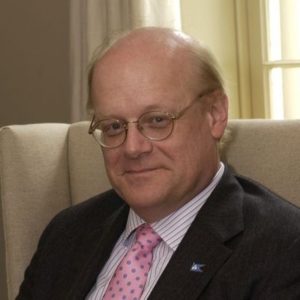
Dr. Allen C. Guelzo is Director of the James Madison Program Initiative on Politics and Statesmanship and Senior Research Scholar in the Council of the Humanities at Princeton University. He is the author of Abraham Lincoln: Redeemer President, which won the Lincoln Prize for 2000.

Dr. Allen C. Guelzo is Director of the James Madison Program Initiative on Politics and Statesmanship and Senior Research Scholar in the Council of the Humanities at Princeton University.
He is the author of Abraham Lincoln: Redeemer President, which won the Lincoln Prize for 2000, Lincoln’s Emancipation Proclamation: The End of Slavery in America, which won the Lincoln Prize for 2005, and Lincoln and Douglas: The Debates That Defined America, which won the Abraham Lincoln Institute Prize for 2008. His most recent work in Lincoln is Abraham Lincoln as A Man of Ideas (a collection of essays published in 2009 by Southern Illinois University Press) and Lincoln, a volume in Oxford University Press’s ‘Very Short Introductions’ series (also 2009). His book on the battle of Gettysburg, Gettysburg: The Last Invasion (Knopf, 2013) spent eight weeks on the New York Times best-seller list.
Previously, he was the Director of Civil War Era Studies and the Henry R. Luce Professor of the Civil War Era at Gettysburg College in Gettysburg, Pennsylvania. During 2010-11 and again in 2017-18, he served as the Wm.L. Garwood Visiting Professor in the James Madison Program in American Ideals and Institutions at Princeton University. He holds the M.A. and Ph.D. in history from the University of Pennsylvania.
He has been awarded the Lincoln Medal of the Union League Club of New York City, the Lincoln Award of the Lincoln Group of the District of Columbia, and the Lincoln Award of the Union League of Philadelphia, in addition to the James Q. Wilson Award for Distinguished Scholarship on the Nature of a Free Society. He has been a Fellow of the Charles Warren Center for Studies in American History at Harvard University, and currently serves as a Trustee of the Gilder-Lehrman Institute of American History.
Readings:
Readings:
Economic Liberty:
Lincoln considered economic opportunity to be the nuclear core of American liberty. The underlying purpose Lincoln discerned in “the toils that were endured by the officers and soldiers of the army, who achieved . . . Independence” was not “the mere matter of the separation of the colonies from the mother land; but something . . . which gave promise that in due time the weights should be lifted from the shoulders of all men, and that all should have an equal chance.” That something was the equality of economic opportunity, which encouraged social mobility and self-transformation for everyone. “We stand at once the wonder and admiration of the whole world,” Lincoln said in 1856, because in the United States, “every man can make himself.” In this way, Lincoln not only linked himself to the American Founding, but to the promoters of classical liberalism in England in the 19th century, especially the so-called ‘Manchester School.’
Readings:
Religion:
Lincoln was raised in a devout religious environment and carried the stamp of that religious upbringing all through his life. But he was also a rebel against religion, and tried to shape his life according to the 18th-century Enlightenment’s model of ‘reason.’ Yet, in his great debates with Stephen A. Douglas, he appealed to natural law and natural rights, and in the depths of the Civil War could find no ‘reasonable’ explanations for the course of events. In the end, Lincoln found himself bringing religion and morality to bear on public policy in a way that no president before (or since) has done.
Readings:
The Survival of Constitutional Democracy:
When Lincoln described the Civil War as test of whether “this nation or any nation so conceived and so dedicated can long endure,” it was not mere rhetoric. By the time Lincoln becomes president, the United States is the only successful, large-scale democracy in the world. Not only does the Civil War make democracy appear unworkable, it challenges the survival of the very Constitution Lincoln was sworn to uphold and defend. He must find a way to wage a principled war against the foes of democracy, yet do it in such a way that does not endanger the constraints the Constitution placed on his office and the national government.
Readings:
Readings:
The Challenge Posed by Slavery:
Lincoln insisted that he had always hated slavery, and committed himself politically to the extinction of slavery. But this desire to abolish slavery was motivated by more than an abstract empathy for an oppressed racial minority. Lincoln considered as slavery any form of economic arrangement which denied people mobility, self-transformation, and the enjoyment of the fruits of their labor.
Readings:
The Legacy of the Founders:
Lincoln considered Washington and Jefferson as the pole stars by which he steered politically. “Washington is the mightiest name of earth—long since mightiest in the cause of civil liberty; still mightiest in moral reformation,” Lincoln said in 1842, “To add brightness to the sun, or glory to the name of Washington, is alike impossible.” Likewise, he added in 1859, “The principles of Jefferson are the definitions and axioms of free society.” The question for Lincoln was how these principles were to be preserved in a rapidly changing environment when confidence in the viability of the American experiment was being challenged, both from within (by American slavery) and from without (by the rebirth of aristocracy and empire in Europe).
Readings:
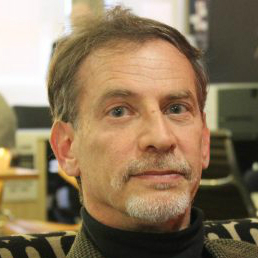
Darren Staloff
Darren Staloff is a retired Professor of History from the City College of New York and the Graduate Center of CUNY. Professor Staloff has published numerous papers and reviews on the subject of early American history.

Diana Schaub
Diana Schaub is a nonresident senior fellow at the American Enterprise Institute (AEI), where her work is focused on American political thought and history, particularly Abraham Lincoln, Frederick Douglass, African American political thought, Montesquieu, and the relevance of core American ideals to contemporary challenges and debates. Concurrently, she is Professor Emerita of Political Science at Loyola University Maryland, where she taught for almost three decades.
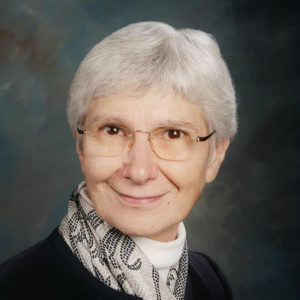
Amy A. Kass
Amy Apfel Kass (1940 – 2015) was a senior fellow at the Hudson Institute, Senior Lecturer Emerita in the humanities at the University of Chicago, and coeditor of What So Proudly We Hail: The American Soul in Story, Speech, and Song. She was an award-winning teacher of classic texts.
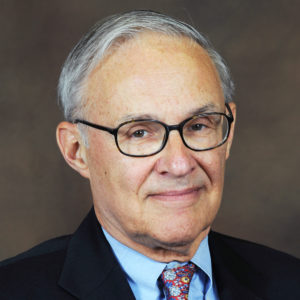
Leon R. Kass
Leon R. Kass, M.D., is the Madden-Jewett Scholar at the American Enterprise Institute and Harding Professor Emeritus in the Committee on Social Thought at the University of Chicago. From 2001 to 2005, he was chairman of the President’s Council on Bioethics.
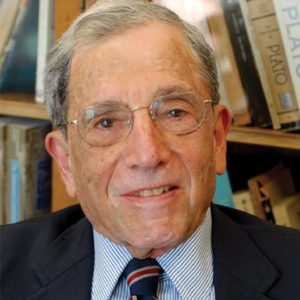
Ralph Lerner
Ralph Lerner is the Benjamin Franklin Professor Emeritus in the College and professor emeritus in the Committee on Social Thought at the University of Chicago. He is the author, most recently, of Naïve Readings: Reveilles Political and Philosophic (University of Chicago Press).
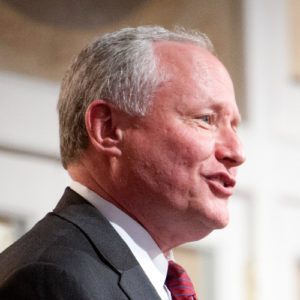
William Kristol
William Kristol is editor at large of The Weekly Standard, which, together with Fred Barnes and John Podhoretz, he founded in 1995. Mr. Kristol has served as chief of staff to the Vice President of the United States and to the Secretary of Education. Before coming to Washington in 1985, Kristol taught politics at the University of Pennsylvania and Harvard’s Kennedy School of Government.
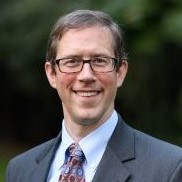
Thomas Merrill
Thomas Merrill is an associate professor in the School of Public Affairs at American University. He is the author of Hume and the Politics of Enlightenment. He is also the co-editor of three edited volumes, including The Political Thought of the Civil War.